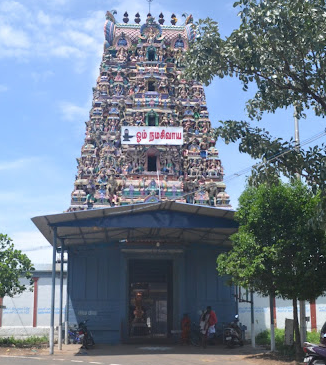As the war between the Kauravas and Pandavas loomed, Sage Veda Vyasa advised Arjuna to meditate on Lord Shiva to obtain the Pasupatha Missile for battle. Arjuna travelled to this location and performed penance to seek Lord Shiva's blessings. To disrupt Arjuna's meditation, Duryodhana sent the demon Mookasura disguised as a pig, but Arjuna shot the creature with an arrow. A hunter and his wife then arrived, claiming the pig as their own, leading to a dispute.
At this moment, Lord Shiva revealed himself to Arjuna and blessed him with the Pasupatha Missile. However, Mother Parvati questioned Arjuna’s worthiness for the boon. In response, Lord Shiva assured her that Arjuna possessed the Matsya Rekha—a fortunate line in his palm—making him deserving of the blessing. Arjuna then showed his palm to Mother Parvati, who approved of the blessing. Arjuna requested that the Lord remain there to bless all devotees.
Administration History :
The Tiruvettakudi Sundareswarar Temple has been under various administrative authorities since its inception. Initially, it was managed by local chieftains during the early mediaeval period. With the influence of the Chola and later Vijayanagara empires, the temple administration evolved, incorporating more structured governance. Today, it is overseen by the Hindu Religious and Charitable Endowments Department of the Government of Tamil Nadu, ensuring its maintenance and cultural significance.
